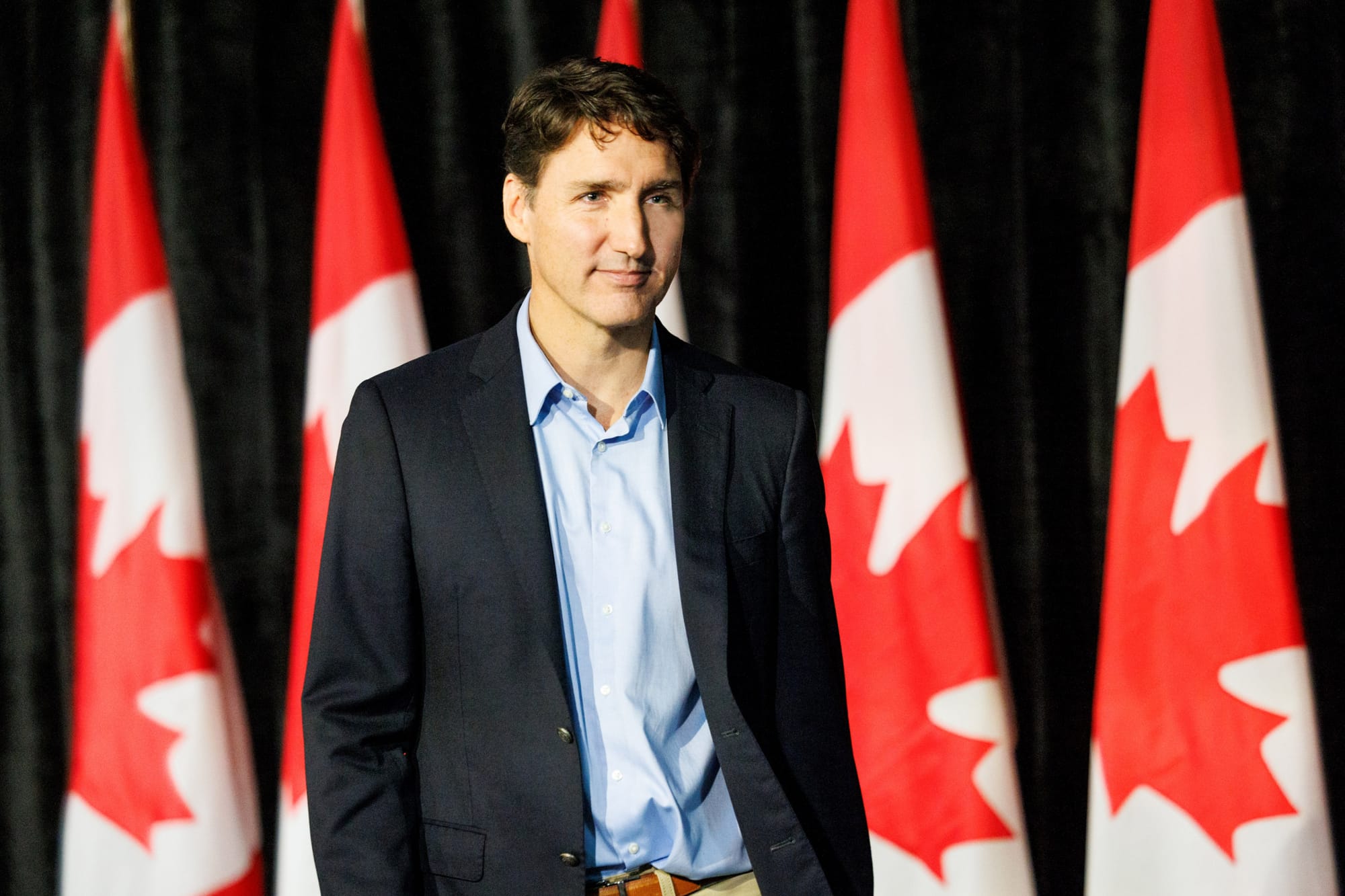As Trudeau proposes fresh tariffs on Chinese EVs, Canada is further embroiled in the trade spat with China
He also highlighted that Canada’s approach aligns with actions taken by Canadian allies such as the United States, which imposed a 100 percent tariff, and the European Union, which announced a range of tariffs from 17.4 percent to 37.6 percent on Chinese electric vehicles.

Clean transportation advocates argue that Prime Minister Justin Trudeau’s decision to impose new tariffs on Chinese electric vehicle manufacturers will hinder the adoption of electric vehicles in Canada, potentially jeopardizing climate goals and increasing costs for consumers.
Nate Wallace, the clean transportation program manager at Environmental Defence, criticized the move, suggesting it is driven more by political motives than by genuine concerns for affordability or the environment. In an interview with Canada’s National Observer, Wallace stated, “This decision, I think, has been driven more by politics than by concerns for affordability or the environment.”
During a federal cabinet retreat in Halifax on Monday morning, Trudeau announced plans to raise tariffs on Chinese electric vehicles by 100 percent and on Chinese-made steel and aluminum products by 25 percent. These tariffs are scheduled to take effect on October 1 and October 15, respectively.
Wallace argued that the significant tariff increase will not only slow the adoption of electric vehicles but also effectively eliminate Chinese imports. “Setting the tariff levels at 100 percent is not actually about leveling the playing field, it’s about shutting out competition entirely,” Wallace said.
Environment and Climate Change Minister Steven Guilbeault defended the government's decision to impose new tariffs on Chinese electric vehicles, emphasizing that the goal is to make EVs more affordable. In an interview with Canada’s National Observer, Guilbeault pointed to existing federal incentives for EVs since 2019, which offer rebates of up to $5,000 for electric, hydrogen fuel cell, and longer-range plug-in hybrids, and up to $2,500 for shorter-range EVs.
Guilbeault noted that automakers have adapted to these incentives by reducing vehicle costs to qualify for rebates, despite previously advocating for a higher price ceiling for eligible vehicles.
Prime Minister Justin Trudeau framed the tariffs as necessary to level the playing field between Chinese and Canadian automakers. Trudeau stated that the decision followed discussions with U.S. National Security Advisor Jake Sullivan and was intended to address what he described as an unfair advantage given to China in the global marketplace. He also highlighted that Canada’s approach aligns with actions taken by Canadian allies such as the United States, which imposed a 100 percent tariff, and the European Union, which announced a range of tariffs from 17.4 percent to 37.6 percent on Chinese electric vehicles.
Finance Canada has indicated that further tariffs on batteries, battery parts, semiconductors, solar products, and critical minerals are being considered.
Critics, including Nate Wallace from Environmental Defence, argue that the tariffs could hinder EV adoption and are counterproductive to Canada’s climate goals. Wallace criticized the decision as politically motivated and pointed out that the European Union's approach—investigating Chinese subsidies and imposing varying tariffs based on cooperation—strikes a better balance between competition and fair play.
Guilbeault also highlighted the Permanent Public Transit Fund, which will allocate $3 billion annually starting in 2026, as a significant investment in public transit and active transportation. Advocates are pushing for the funding to begin this year and to be doubled.
Western automakers openly discuss the challenges of the electric vehicle (EV) market, highlighting how thin profit margins on EVs are exacerbated by the growing popularity of cheaper Chinese models. During a July earnings call, Stellantis CEO Carlos Tavares acknowledged the "heavy pressure of the Chinese offensive" in European markets, predicting that this competition will drive down EV costs. To counteract this, Tavares indicated that import tariffs will be used to make Chinese vehicles more expensive and less competitive. He also announced that Stellantis will introduce EVs in Europe starting at €20,000 ($30,000), showing that it is possible to offer both affordability and profitability while maintaining zero emissions.

Nate Wallace from Environmental Defence argues that shutting out Chinese competitors in Canada could prevent consumers from benefiting from lower prices and technological advancements driven by competition. He emphasized that affordable EVs are crucial for increasing adoption, and that Canada has been reliant on Chinese battery innovations to reduce costs across the sector. Without this competition, Wallace contends that Canada lacks a strategy to provide affordable EVs.
The Canadian federal government has committed to a zero-emission vehicle mandate requiring all new cars to be non-emitting by 2035, as announced at the UN climate conference in Glasgow in 2021. Despite this commitment, EV sales in Canada remain low compared to other regions. In 2023, EVs accounted for about 12 percent of the Canadian market, while they represent 24 percent in Europe and 44 percent in China. Although EV sales in Canada have increased since 2017, they still lag behind those of traditional gasoline vehicles.
In 2023, British Columbia, Ontario, and Quebec accounted for over 90 percent of new zero-emission vehicle sales in Canada, as reported by the Canada Energy Regulator. Electric vehicle sales in B.C. and Quebec are nearly double the national average, largely due to lower electricity prices and more generous incentives.
Joanna Kyriazis, director of public affairs at Clean Energy Canada, criticized Canada’s decision to impose tariffs, arguing it will lead to fewer affordable EV options, reduced competition, and increased pollution. “Chinese brands represent 50 percent of global EV sales, and more critically, 80 percent of battery cells are produced in China,” Kyriazis noted. “Many North American automakers still depend on Chinese-made components, including batteries. Imposing tariffs could raise costs for Canadian consumers, affecting not just EVs but other electronics as well.”
Kyriazis warned that protecting Canadian auto manufacturers through tariffs might inadvertently undermine the market. Slowing EV sales could lead to manufacturers canceling or delaying their EV plans, citing GM’s discontinuation of the Chevy Bolt last year as an example. “The Chevy Bolt was the most affordable EV in Canada and sold better than any other EV not made by Tesla,” she said. “Now, Canadians lack options at that price point.”
To mitigate the impact on consumers and maintain strong EV adoption, Kyriazis recommended that the federal government enhance its electric vehicle incentives program, lower the price cap for rebates, and introduce new rebates for used EVs.
Environment and Climate Change Minister Steven Guilbeault, who has previously collaborated with China on international environmental initiatives, acknowledged that the 100 percent tariff could affect diplomatic dynamics. “There were many factors to consider when making the decision to impose tariffs,” Guilbeault said. “While we recognize China's efforts in climate action, Canada’s commitment remains robust.”
Guilbeault framed the tariffs as part of a broader strategy to balance cooperation with China on environmental issues while addressing concerns over human rights in the EV industry.






